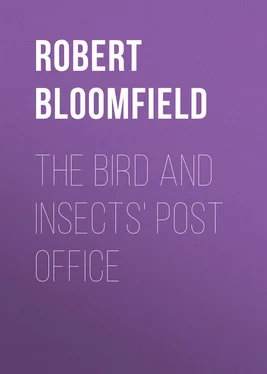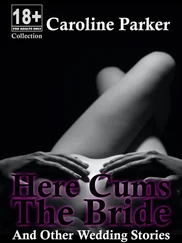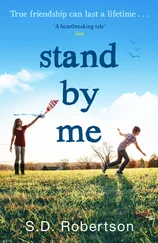Robert Bloomfield - The Bird and Insects' Post Office
Здесь есть возможность читать онлайн «Robert Bloomfield - The Bird and Insects' Post Office» — ознакомительный отрывок электронной книги совершенно бесплатно, а после прочтения отрывка купить полную версию. В некоторых случаях можно слушать аудио, скачать через торрент в формате fb2 и присутствует краткое содержание. Издательство: Иностранный паблик, Жанр: foreign_antique, foreign_prose, на английском языке. Описание произведения, (предисловие) а так же отзывы посетителей доступны на портале библиотеки ЛибКат.
- Название:The Bird and Insects' Post Office
- Автор:
- Издательство:Иностранный паблик
- Жанр:
- Год:неизвестен
- ISBN:нет данных
- Рейтинг книги:4 / 5. Голосов: 1
-
Избранное:Добавить в избранное
- Отзывы:
-
Ваша оценка:
- 80
- 1
- 2
- 3
- 4
- 5
The Bird and Insects' Post Office: краткое содержание, описание и аннотация
Предлагаем к чтению аннотацию, описание, краткое содержание или предисловие (зависит от того, что написал сам автор книги «The Bird and Insects' Post Office»). Если вы не нашли необходимую информацию о книге — напишите в комментариях, мы постараемся отыскать её.
The Bird and Insects' Post Office — читать онлайн ознакомительный отрывок
Ниже представлен текст книги, разбитый по страницам. Система сохранения места последней прочитанной страницы, позволяет с удобством читать онлайн бесплатно книгу «The Bird and Insects' Post Office», без необходимости каждый раз заново искать на чём Вы остановились. Поставьте закладку, и сможете в любой момент перейти на страницу, на которой закончили чтение.
Интервал:
Закладка:
Robert Bloomfield
The Bird and Insects' Post Office
PREFACE
"The Bird and Insects' Post-Office" was projected and written by Robert Bloomfield, author of the "Farmer's Boy," &c., excepting Letters VIII., X., XI., and XVI. by his eldest son, Charles. It was the author's intention to publish it uniformly with his other juvenile work, the "History of Little Davy's New Hat," but he did not live to do so, and it was therefore included in his literary Remains , published in 1824 – a year after the poet's death – in two volumes, price twelve shillings. Its circulation, in consequence, has been extremely limited, its form of publication preventing its introduction to children; for this reason, and because I think it would be a pity for it to be shut up for ever in a dusty old volume from the little ones, for whom it was written, I have sent it forth in the form originally intended for it to assume.
The original manuscript, in the author's autograph, I recently presented to the Trustees of the British Museum.
WALTER BLOOMFIELD.March 1st, 1879.
AUTHOR'S PREFACE
We all know that Æsop has made his birds and beasts talk, and reason too; and that so well as still to make the volume bearing his name a favourite with thousands. Perhaps, too, we all know that same French author has objected to this method of teaching, alleging that children should not be imposed upon (or something to that effect), and led to believe in the reality of talking birds and beasts. To me it appears plainly that they do not, nor are they inclined to, believe in any such reality. Observe two or three children at play with a favourite kitten. When one of them, in mere wantonness, shall give the little animal a rap on the nose, or a squeeze by the tail, the owner of the cat will instantly exclaim, "Poor little pussy! she does not like that, she says ." Now, the child knows very well that the cat did not say a word about the matter, but she looked and acted as if she had, and that was enough.
In the following pages I have endeavoured to make my winged and creeping correspondents talk in their own characters, according to their well-known habits and pursuits.
I have added a few notes, sometimes of illustration, and sometimes of inquiry; for, as natural history is almost a boundless field, I may stand in need of correction myself. It will be obvious that I have taken only some of the plainest and simplest subjects, for the purpose of trying whether any interest can be awakened in young minds by such means. And as I like to write for children, and think a great deal of information might be blended with amusement in this way, I hold myself acquitted of the charge of trifling and puerility, and am the young reader's friend and well-wisher,
R[OBERT] B[LOOMFIELD.]LETTER I.
FROM THE MAGPIE TO THE SPARROW
Little Jabberer,
I have many times thought of addressing to you a few words of advice, as you seem to stand in need of such a friend.
You know that I do not stand much upon ceremony; I am always ready for talking and for giving advice, and really wonder how other birds can keep themselves so quiet. Then you will pardon my frankness, since you know my character, when I inform you that I think you remarkably tame and spiritless: you have no enterprise in you. In an old farmyard, shuffling amongst the straw, there you may be found morning, noon and night; and you are never seen in the woods and groves with me and my companions, where we have the blessing of free liberty, and fly where we please. You must often have heard me sing; that cannot be doubted, because I am heard a great way. As to me, I never come down to your farm, unless I think I can find a hen's egg or two amongst the nettles, or a chicken or duck just hatched.
I earnestly advise you to change your manner of life and take a little free air, as I do. Stop no longer in your dull yard, feeding upon pigs' leavings, but come abroad with me. But I must have done till a better opportunity; for the gamekeeper with his gun has just turned the corner. Take my advice, and you may be as well off, and learn to sing as well as I do.
Yours, in great haste, MAG.LETTER II.
THE SPARROW'S REPLY
Old Mag (I won't say Neighbour),
I was hopping along the top ridge of the house when I received your insolent and conceited epistle, which does you no credit, but is very much in your usual style. "Little Jabberer" indeed! and pray, what is your letter of advice? Nothing but jabber from beginning to end. You sing , you say. I have heard you often enough; but if yours is singing, then I must be allowed to be no judge of the matter. You say you are afraid of the gamekeeper; this, perhaps, allows some sense in you, for he is paid for killing all kinds of vermin.
And so you come down to our farm when you think you can steal something! Thus, if I did not hide my eggs and my young ones, in a hole too small for you to enter, I can see pretty plainly how I should come off with your thieving and your advice.
Be advised in your turn; keep away from our yard, for my master has a gun too; and your chattering, which I suppose you call singing, he abominably hates. You will be in danger of catching what the gamekeeper threatens, and then where is the great difference between your station and mine?
From my lodging under the thatch of the stable, I am, as you may happen to behave yourself,
Yours, at a convenient distance, &c. &c.LETTER III.
FROM A YOUNG GARDEN-SPIDER TO HER MOTHER
Dear Mother,
I cannot exactly tell what happened before I came out of the shell; but, from circumstances, I can give you some information. When I came to life, amongst some scores of other little merry yellow creatures, I found myself, and all of us, enclosed in a thing, through which we, with our eight eyes, could see very well, but could not instantly get out. I soon perceived that we, in the egg state, wrapped in a white bag, as you left us, had been put into a thing called a bottle, by one of those great creatures whom we always call striders ; but this was a particular one of that tribe, who wanted to play tricks with us – one whom they would perhaps call a philosopher. 1 1 This part of the letter is very difficult of translation, as the plain word, in spiders' language, means merely "a deep one." – R. B.
Well, his own sense (if he had any) told him that we could not live without air; so he left the cork out, and went about his business; no doubt of much less consequence than the lives of all us prisoners – but that they do not mind. But how long were we prisoners? Why, as soon as ever we were out of the shell we began to spin, and linked our webs so thick together that the philosopher's bottle would hold us no longer. We climbed out in a crowd, and spread our webs over the room, up to the very ceiling. I shall never forget how the great booby stared when he saw us all climbing up our own rope-ladders! I wonder if those great creatures are not sometimes caught in webs spun by their fellow-creatures, and whether they are not sometimes put by hundreds into a bottle without possessing any means of escape? But I am but a child, and must live and learn before I talk more freely. Long life to you, dear mother, and plenty of flies.
LETTER IV.
FROM A YOUNG NIGHTINGALE TO A WREN
Neighbour,
When we last met you seemed very lively and agreeable, but you asked an abundance of questions, and particularly wanted to know whether we nightingales really do, as is said of us, cross the great water every year, and return in the spring to sing in your English groves. Now, as I am but young, I must be modest, and not prate about what I cannot as yet understand. I must say, nevertheless, that I never heard my parents talk of any particular long journey which they had performed to reach this country, or that they should return, and take me and the rest of the family with them, at this particular time or season. I know this, that I never saw my parents fly further at one flight than from one side of a field to another or from one grove to the next. Who are they who call us "birds of passage"?
Читать дальшеИнтервал:
Закладка:
Похожие книги на «The Bird and Insects' Post Office»
Представляем Вашему вниманию похожие книги на «The Bird and Insects' Post Office» списком для выбора. Мы отобрали схожую по названию и смыслу литературу в надежде предоставить читателям больше вариантов отыскать новые, интересные, ещё непрочитанные произведения.
Обсуждение, отзывы о книге «The Bird and Insects' Post Office» и просто собственные мнения читателей. Оставьте ваши комментарии, напишите, что Вы думаете о произведении, его смысле или главных героях. Укажите что конкретно понравилось, а что нет, и почему Вы так считаете.












